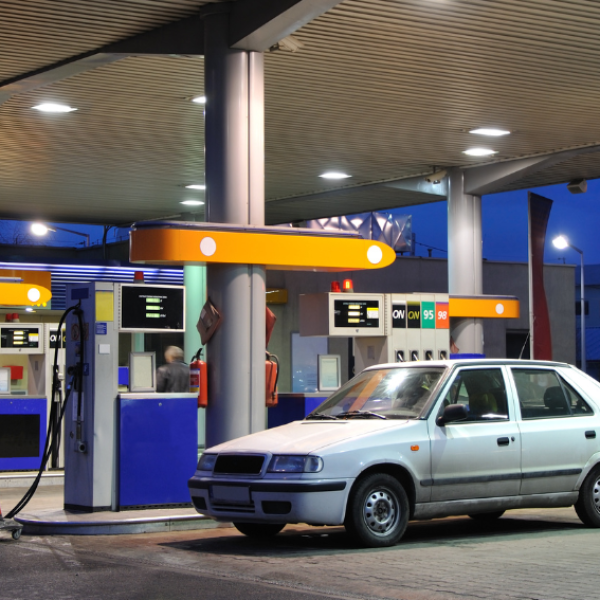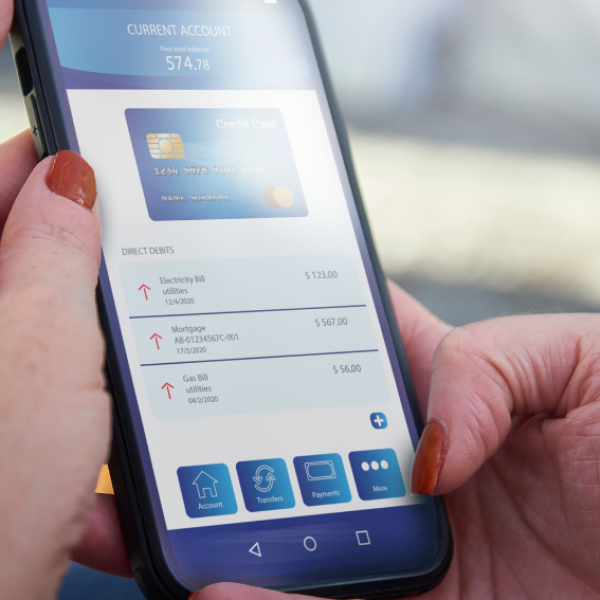The petroleum industry operates with unique challenges, from high transaction volumes at the pump to the need for advanced security and fleet card compatibility. With thin profit margins, gas station owners must choose merchant accounts tailored to their specific needs. This guide explores the top merchant accounts for petroleum stations, highlighting their features, benefits, and considerations for selecting the best provider.
In This Article
ToggleWhy Petroleum Stations Need Specialized Merchant Accounts
Gas stations operate in a unique environment with high transaction volumes, diverse customer needs, and advanced technological requirements. Specialized merchant accounts cater specifically to these challenges, offering solutions designed to enhance efficiency, security, and profitability.
1. High Transaction Volume
Gas stations process countless small-ticket transactions daily, typically ranging from a few dollars for a fuel top-up to larger amounts for full refueling. These transactions can add up to hundreds or thousands of individual card payments every day.
- Profitability Concerns: High transaction volume magnifies the impact of processing fees. A slight increase in per-transaction fees can significantly reduce profit margins, making low-cost processing essential.
- Efficiency Needs: With so many transactions, delays at the pump or in-store can create long lines and frustrated customers. Specialized accounts ensure fast and seamless processing.
Example: A station that processes 1,000 transactions daily could save significant amounts annually by choosing a provider offering competitive rates, such as interchange-plus pricing, rather than flat-rate models that may charge more per transaction.
2. Fleet Card Compatibility
Fleet cards, such as WEX, Voyager, and Fuelman, are essential for gas stations catering to corporate clients and commercial fleets. These cards allow businesses to track and manage fuel expenses efficiently, making them a preferred payment method for logistics companies, delivery services, and other fleet operators.
- Increased Customer Base: Accepting fleet cards attracts corporate customers who rely on these payment solutions.
- Streamlined Transactions: Fleet cards often include additional data like mileage or vehicle ID, making them invaluable for business operations.
- Lower Processing Costs: Some fleet card transactions qualify for reduced processing fees due to their high volume and consistent usage.
Example: A gas station accepting WEX cards could see an influx of corporate clients, boosting revenue while offering specialized benefits like detailed transaction reporting for fleet management.
3. Security Requirements
The fuel industry is a prime target for fraud, particularly with pay-at-the-pump systems that may lack direct oversight. Specialized merchant accounts focus on robust security measures to combat these threats.
- PCI Compliance: Ensures that the gas station’s payment systems adhere to stringent security standards to protect sensitive cardholder data.
- EMV Compatibility: Chip-enabled card readers reduce the risk of fraud compared to traditional magnetic stripe readers.
- Point-to-Point Encryption (P2PE): Encrypts cardholder data from the moment of transaction, preventing interception by cybercriminals.
Example: A station implementing P2PE and EMV systems may see a significant reduction in fraud-related losses, improving customer trust and safeguarding its reputation.
4. Pay-at-the-Pump Functionality
Pay-at-the-pump systems revolutionized the customer experience at gas stations, enabling self-service convenience. However, these systems require merchant accounts that can handle their unique demands.
- Fast Processing: Customers expect quick authorization to avoid delays. Specialized accounts optimize processing speeds to keep the line moving.
- Compatibility: Integration with existing hardware and software, including POS systems, is crucial for seamless operation.
- Enhanced Customer Satisfaction: By reducing wait times and offering multiple payment options, stations can improve the overall customer experience.
Example: A gas station with an efficient pay-at-the-pump system may attract more customers during peak hours, boosting sales and reducing congestion.
5. Integration with POS Systems
Gas stations often serve dual roles as fuel providers and convenience stores. This dual functionality requires centralized systems capable of managing diverse transactions, inventory, and employee operations.
- Centralized Management: A well-integrated POS system allows stations to oversee fuel sales, in-store purchases, and ancillary services like car washes from a single platform.
- Enhanced Reporting: Integration provides detailed insights into sales patterns, inventory levels, and employee performance.
- Omnichannel Payments: Enables seamless processing across pumps, store counters, and even mobile apps.
Example: A station using an integrated POS system can offer loyalty programs that reward both in-store and fuel purchases, enhancing customer retention.
Key Features to Look for in Petroleum Merchant Accounts

Selecting the right merchant account provider is critical for optimizing operations and minimizing costs. Here are the key features to prioritize:
1. Transparent Pricing
Gas stations often process high volumes of small transactions, making it essential to avoid hidden fees and confusing pricing models. Transparent pricing ensures predictable costs and better financial management.
- Interchange-Plus Pricing: Breaks down fees into card network costs (interchange) and the processor’s markup, offering clarity and potential savings.
- Flat-Rate Pricing Caution: While predictable, flat-rate pricing may result in higher costs for high-volume businesses.
Example: A station processing 50,000 transactions monthly could save thousands annually by opting for interchange-plus pricing over a flat-rate plan.
2. Fleet Card Acceptance
Fleet card compatibility is non-negotiable for gas stations aiming to attract commercial clients. Supporting major fleet card networks ensures wider customer reach.
- Major Networks: Ensure compatibility with WEX, Voyager, and Fuelman cards.
- Additional Features: Some merchant accounts offer reporting tools tailored to fleet transactions, providing added value to business customers.
Example: A station that accepts fleet cards and offers discounts for bulk purchases can secure long-term contracts with corporate clients.
3. Advanced Fraud Prevention
Fraud prevention tools protect both the business and its customers, reducing chargebacks and improving financial stability.
- Address Verification System (AVS): Verifies billing addresses during transactions to prevent unauthorized purchases.
- Visa Transaction Advisor (VTA): Detects potential fraud at pay-at-the-pump systems.
- Real-Time Monitoring: Alerts businesses to suspicious activity, allowing for immediate action.
Example: Implementing AVS and VTA can significantly reduce the incidence of card fraud at a station, lowering chargeback rates and saving money.
4. Seamless Integration
Integration with existing systems streamlines operations and improves efficiency, making it a key consideration when choosing a provider.
- POS Compatibility: Ensure the account integrates with industry-standard systems like NCR and Verifone.
- API Support: Custom integrations for proprietary systems enable flexibility.
- Omnichannel Payments: Unified processing across pumps, counters, and mobile apps simplifies operations.
Example: A station using a unified POS system can track inventory across multiple locations, optimizing stock levels and reducing waste.
5. Support for Mobile Payments
The growing adoption of mobile payment methods demands merchant accounts that support digital wallets and contactless transactions.
- Popular Wallets: Ensure compatibility with Apple Pay, Google Pay, and Samsung Pay.
- Future-Proofing: Staying ahead of payment trends enhances customer satisfaction and loyalty.
Example: A station offering mobile payment options can attract tech-savvy customers, particularly younger demographics.
6. Reliable Customer Support
Payment issues can lead to downtime, frustrated customers, and lost revenue. Reliable customer support minimizes these risks.
- 24/7 Availability: Essential for businesses operating around the clock.
- Expert Staff: Support teams should understand the unique needs of the petroleum industry.
- Quick Resolutions: Prompt assistance prevents minor issues from escalating.
Example: A station experiencing a payment system glitch during peak hours can quickly resume operations with the help of responsive support.
Top Merchant Account Providers for Petroleum Stations

Selecting the right merchant account provider is crucial for gas station owners aiming to streamline payment processing, enhance security, and provide excellent customer experiences. Below is an in-depth look at some of the best merchant account providers tailored specifically for the petroleum industry:
1. PaymentCloud
PaymentCloud is widely regarded as one of the leading options for high-risk industries, including petroleum stations. Its tailored solutions cater to the unique needs of gas stations, ensuring secure and efficient payment processing.
Key Features:
- Fleet Card Compatibility: Full support for major fleet cards such as WEX and Voyager.
- POS System Integration: Seamless compatibility with industry-standard POS systems, including pay-at-the-pump functionality.
- Advanced Fraud Prevention: Features like point-to-point encryption (P2PE) and Address Verification System (AVS) safeguard transactions.
- Transparent Pricing: Clear interchange-plus pricing with no hidden fees, ensuring predictable costs.
Why Choose PaymentCloud?
PaymentCloud’s expertise in high-risk industries ensures that gas station owners receive robust fraud prevention tools, fleet card support, and scalable solutions. This makes it an excellent option for stations handling large transaction volumes or requiring advanced security measures.
2. Host Merchant Services (HMS)
Host Merchant Services is known for its affordability and exceptional customer service. Its solutions are designed with gas stations in mind, addressing the unique challenges faced by the petroleum industry.
Key Features:
- Transparent Pricing: Offers interchange-plus pricing, providing clarity and cost-effectiveness.
- Fleet Card and Pay-at-the-Pump Support: Ensures compatibility with fleet cards and modern pump systems for seamless operations.
- 24/7 Customer Support: Responsive support ensures quick resolution of technical or payment-related issues.
- Advanced Reporting Tools: Provides detailed financial reports to help manage transaction data and optimize operations.
Why Choose HMS?
Host Merchant Services is ideal for small to medium-sized gas stations due to its affordable pricing and excellent functionality. Its emphasis on customer satisfaction and transparent fees makes it a reliable partner for petroleum businesses.
3. BankCard USA
BankCard USA specializes in secure and compliant merchant accounts tailored for gas stations. Its robust features are designed to address the high transaction volume and security needs of the petroleum industry.
Key Features:
- PCI and EMV Compliance: Ensures secure transactions and protection against fraud.
- Fleet Card Compatibility: Supports major fleet card networks to attract corporate clients.
- Real-Time Fraud Monitoring: Detects and prevents fraudulent transactions, reducing chargebacks.
- POS Integration: Works seamlessly with both in-store and pay-at-the-pump systems.
Why Choose BankCard USA?
BankCard USA’s focus on security and compliance makes it an excellent choice for gas stations dealing with high transaction volumes. Its advanced fraud prevention tools and fleet card support help gas station owners build trust and attract a broader customer base.
4. Payroc
Payroc offers advanced fraud prevention tools and scalable solutions, making it a top choice for growing gas stations or those located near international borders requiring multi-currency support.
Key Features:
- Fraud Prevention Systems: Real-time monitoring and detection ensure secure transactions.
- Fleet Card and Mobile Payment Compatibility: Accepts fleet cards as well as contactless payments like Apple Pay and Google Pay.
- Custom Pricing Plans: Tailored pricing based on transaction volumes helps gas stations save on fees.
- POS Integration: Extensive compatibility with leading POS systems ensures seamless operations.
Why Choose Payroc?
Payroc’s robust security features and flexible pricing make it a go-to provider for gas stations of all sizes. Its multi-currency support and scalability also make it ideal for businesses with plans to expand internationally or serve diverse customer bases.
5. Square
Square is a versatile payment processor that excels in simplicity and affordability. While it lacks fleet card compatibility, its flat-rate pricing and user-friendly solutions make it a great option for smaller, independent gas stations.
Key Features:
- Flat-Rate Pricing: Predictable costs with no hidden fees or long-term contracts.
- POS and Mobile Solutions: Offers easy-to-use POS systems and mobile payment options.
- Contactless Payment Support: Accepts digital wallets like Apple Pay and Google Pay for added customer convenience.
- Transparent Fees: No additional charges for setup or account maintenance.
Why Choose Square?
Square is best suited for small gas stations that don’t require fleet card support but need a straightforward and cost-effective payment solution. Its simplicity and reliable customer service make it an attractive option for independent operators.
Benefits of Choosing the Right Merchant Account Provider
Selecting the right merchant account provider can have a transformative impact on your gas station’s operations and profitability. Here’s how:
1. Reduced Costs
Transparent pricing and competitive rates minimize transaction fees, allowing gas stations to retain more of their revenue. Providers offering interchange-plus pricing often deliver the best value for high-volume businesses.
2. Enhanced Security
Compliance with PCI standards, EMV compatibility, and advanced fraud prevention tools protect against unauthorized transactions and data breaches. This not only safeguards the business but also builds customer trust.
3. Improved Customer Experience
Seamless integration with POS systems and pay-at-the-pump functionality ensures fast and convenient transactions, enhancing the overall customer experience.
4. Increased Revenue
Accepting fleet cards and multi-currency payments broadens the customer base, attracting corporate clients and international travelers, which boosts revenue potential.
5. Operational Efficiency
Modern merchant account providers offer integrated solutions that streamline operations, from managing inventory to tracking employee performance. This reduces administrative burden and enhances productivity.
How to Choose the Best Merchant Account for Your Gas Station

1. Assess Your Needs
Evaluate your specific requirements, such as transaction volumes, fleet card acceptance, and integration with existing systems. Understanding your needs helps prioritize features and avoid unnecessary expenses.
2. Compare Providers
Research multiple providers, focusing on their features, pricing models, and customer reviews. Comparing options side-by-side helps identify the best fit for your station’s unique needs.
3. Prioritize Transparency
Choose providers that offer clear and predictable fee structures. Hidden fees can erode profits, so transparency is critical for effective financial planning.
4. Check Security Features
Ensure the provider offers comprehensive fraud prevention tools, PCI compliance, and advanced encryption technologies to safeguard transactions and protect customer data.
5. Consider Customer Support
Opt for providers with reliable, round-the-clock customer support. Quick issue resolution minimizes downtime, ensuring uninterrupted service for your customers.
Conclusion
The petroleum industry’s unique challenges require merchant account providers with specialized solutions. Providers like PaymentCloud, Host Merchant Services, BankCard USA, Payroc, and Square cater to the specific needs of gas stations, offering features like fleet card compatibility, fraud prevention, and seamless POS integration.
By choosing the right merchant account, petroleum station owners can enhance security, streamline operations, and improve customer satisfaction, all while keeping costs under control.
Frequently Asked Questions
Why do petroleum stations need specialized merchant accounts?
Petroleum stations handle high transaction volumes, require fleet card compatibility, and need robust security features like PCI compliance and EMV support. Specialized merchant accounts cater to these unique needs.
What features should I look for in a gas station merchant account?
Key features include transparent pricing, pay-at-the-pump functionality, fleet card support, fraud prevention tools, and seamless POS integration.
Which merchant account providers are best for petroleum stations?
Top providers include PaymentCloud, Host Merchant Services, BankCard USA, Payroc, and Square, each offering tailored solutions for gas station businesses.










